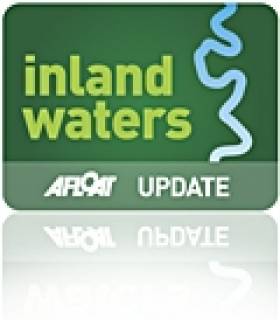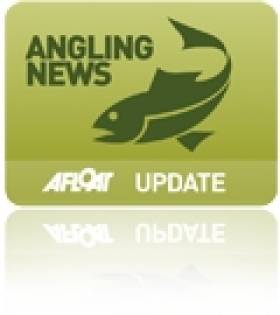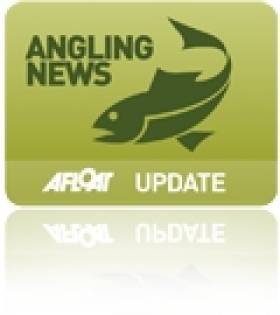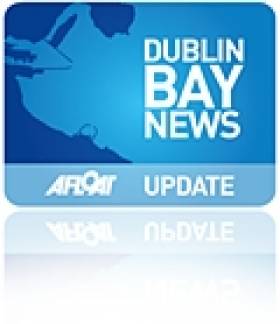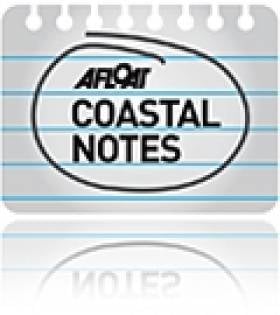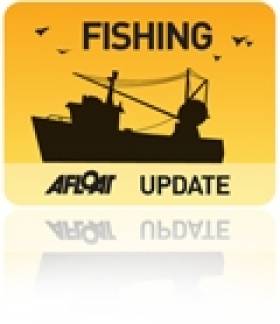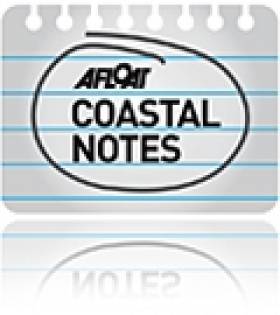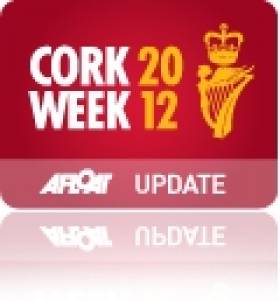Displaying items by tag: Economy
Take Part In The Waterways Ireland Survey On Boating's Contribution To The Economy
#InlandWaters - Waterways Ireland is carrying out research via an open survey on the contribution of boating to the Irish economy.
The online survey is open to all boat owners on Ireland's inland waterways, and seeks information about their purchasing and maintenance expenditure, as well as the ongoing expense of using a craft on the inland waterways over the past year.
The survey is a repeat of the Economic Contribution of Private Boat Owners survey carried out in 2006, which is available to download at the Waterways Ireland website.
All boat owners are invited to visit the Open Surveys section of the website and complete the survey to have their say before 30 October 2014. The survey should take 10-12 minutes to complete.
The survey results will be available on the Waterways Ireland website as soon as the report is published.
IFI 'Stands Over Findings' Of Angling Economic Study
#Angling - Inland Fisheries Ireland (IFI) says it stands over the findings of a recent socio-economic study of recreational angling in Ireland, following what it described as "erroneous reports in certain elements of the media" suggesting that angling's contribution to the economy was overstated.
IFI says the principal results of the study, which was published in July 2013, estimate that recreational angling in Ireland contributes some €755 million to the Irish economy and supports more than 10,000 jobs in peripheral and rural areas.
"The results in this report are based on sound economic principles," said the fisheries body in a statement. "The report was compiled by industry experts Tourism Development International (TDI) who are a renowned and widely respected professional consultancy company."
The work team included Dr Stephen Hynes of the Socio-Economic Marine Research Unit of NUI Galway, while Prof Brendan Whelan, former director of the Economic and Social Research Institute (ESRI), provided direction and assistance in the design of the survey and review of the report and findings.
"Regrettably it appears that inaccurate extrapolations from the study data prepared and published by a Scottish aquaculture blog has underpinned a complete misunderstanding and misrepresentation of the findings of the study, which was used by a lobby group in a recent communication to the media," IFI added.
The full study is available to download from the IFI website HERE.
#Angling - Ireland's recreational angling sector generates more than half a billion euro annually, according to the Minister for Natural Resources.
As the Irish Examiner reports, Minister Pat Rabbitte revealed the significant figure in a written response to a Dáil question by Tommy Broughan TD, who requested a breakdown of the number of people participating in all forms of angling in the State.
The minister went on to confirm that the angling industry "sustainably supports more than 10,000 jobs... particularly in the West of Ireland".
Minister Rabbitte's announcement comes ahead of the pending publication of an Inland Fisheries Ireland study on Ireland's angling sector. Afloat.ie will have the latest on that when it appears.
Elsewhere in Ireland, the Belfast Telegraph reports that a man has been found guilty of a number of fisheries offences at Belfast Magistrates' Court.
Derek Ferguson of Larne was fined a total of £225 (€265) for unlicensed angling, unauthorised entry to fisheries and using unlawful angling methods.
TD Slams 'Crazy' Howth Parking Charge Proposals
#Howth - "Disastrous" could be the effect for Howth's economy if car parking charges proposed by Government are introduced, as The Irish Times reports.
Tommy Broughan, Labour TD for Dublin North East, hit out at plans to charge for parking in the harbour area of the North Dublin fishing village, describing them as "crazy" and potentially devastating for Howth's marine and tourism industries.
He also criticised the failure of Marine Minister Simon Coveney and his department to consult with local stakeholders before pressing forward with the plans.
However, Minister of State Dinny McGinley argued that the vast majority of the 500 spaces available in Howth village were being used by park-and-ride commuters, and that only a small number of users involved in the fishing industry were effectively funding the service for all.
The Irish Times has more on the story HERE.
New Targets for Oil Exploration Off Southwest Coast
#COASTAL NOTES - Oil exploration company Petrel Resources has identified a number of new targets off the southwest coast of Ireland as it seeks bigger partners for its venture.
The Irish Times reports that the Dublin-based firm was awarded licensing options over 1,400 sq km of the Porcupine Basin or Porcupine Blight in the Atlantic Ocean, west of Dursey Island in Co Kerry.
It has since completed two phases of work in the area, and says technical studies of its blocks in the northern and eastern parts of the basin, where is is testing for the presence of reservoir sands, were "encouraging".
The announcement comes following the success of Providence Resources' prospect in the Celtic Sea off the south coast.
As previously reported on Afloat.ie, the Barryroe field may deliver in excess of 2 billion barrels of oil, a flow expected to be worth billions of euro to the Irish economy in future years.
The Irish Times has more on the story HERE.
Blue Growth 'Roadmap' to Double Ireland's Marine Economy
#MARINE RESOURCES - The Irish Times reports on ambitious plans to double the turnover generated by the ocean economy as announced by the Taoiseach yesterday.
The new 'ocean wealth roadmap' is specifically geared towards exploiting the potential for 'blue growth', which is also the focus of the EU Strategy for the Atlantic to be discussed at the first Altantic Forum in September.
Ireland currently generates 1.2& of its GDP from the marine sector, compared to 4.2% in the UK and as much as 20% in Norway.
The new plan, endorsed by Taoiseach Enda Kenny and Minister for the Marine Simon Coveney, emphasises that the "real map of Ireland" emcompasses maritime territory 10 times bigger than the landmass, and will look to identify opportunities for growth in the areas of aquaculture, renewable energy, coastal tourism and marine biotechnology.
A list of 15 “actions” for implementation between now and 2014 includes the development of an enterprise strategy for key areas, such as offshore renewables, offshore services, as well as the introduction of a “robust planning and licensing framework”.
The Taoiseach said the Government was “determined that it will be a key component of our economic recovery and sustainable growth generating social, economic and cultural benefits for all”.
The Irish Times has more on the story HERE.
Pioneering Programme for Isle of Man Scallop Fishery
#FISHING - Conservationists and the fishing industry have joined forces in a new venture to evaulate the state of the Isle of Man's scallop fishery, as the Guardian reports.
Both sides will co-manage the 35-square-mile Ramsey marine nature reserve in the Irish Sea, collecting data to show what progress the scallops have made since fishing in the area was banned in 2009.
It is hoped that the study will lead to a renewing of leases for scallop fishing, which is worth up to £12 million annually to the Isle of Man's economy - though industry leaders have doubts that the new arrangement will serve the island's fishermen.
Some 2.6% of Manx waters are protected, with more than 1% 'highly protected', which is in stark contrast to the rest of the United Kingdom after plans for a national network of conservation zones were shelved till at least next year.
The Guardian has much more on the story HERE.
Oil Strike Success Off Cork Coast Could Be Worth Billions
#COASTAL NOTES - Providence Resources has struck big off the south coast of Cork with an oil flow that could be worth billions of euro to the beleaguered Irish economy.
According to the Guardian, the Dublin-based company announced yesterday that oil had started to flow successfully from its Barryroe structure in the north Celtic Sea at nearly twice the rate previously projected.
Providence Resources CEO Tony O'Reilly Jr said the discovery was a "seminal day for Ireland, especially in the runup to St Patrick's Day."
Last month the firm had confirmed the presence of light oil with its first appraisal well at the site, a situation described by its technical director as "extremely encouraging".
Now that a steady flow has been achieved, future extraction from the oil field - comparable to a medium-to-large North Sea field - can surely proceed, which now puts pressure on the Government to grand permission for further exploration around the Irish coast.
As previously reported on Afloat.ie, plans by Providence Rescources to prospect for oil on the east coast off Dalkey Island have been met with fierce opposition by mainland residents and environmental groups.
The Guardian has much more on the story HERE.
Minister Launches Consultation on Harnessing Ireland's Ocean Wealth
#NEWS UPDATE - Minister for the Marine Simon Coveney has launched a public consultation process on harnessing the potential of Ireland's vast marine resources.
Our Ocean Wealth is calling for input into how Ireland can best capitalise on the trillion-euro global market for marine products and services, from seafood and tourism to shipping, oil and gas, renewable ocean energy and marine science.
Launching the consultation, Minister Coveney said: "We need to change the way we in Ireland think about the sea and look for new opportunities to harness the potential of our 220-million-acre marine resource.
"This government is determined to generate the momentum to drive forward a new era of sustainable economic development across the maritime sectors - we must avail of these opportunities to assist in our recovery. We want your help to shape our plan, to shape our future and to assist in our drive towards our nation's economic recovery."
The consultation process is a step towards developing an Integrated Marine Plan for Ireland intended to grow the percentage of GDP generated by the country's marine resource, which covers an area 10 times the size of Ireland's land mass.
The minister added: "We need an Integrated Marine Plan to harness our ocean wealth, get the environment right for investment and use the potential of our marine economy to create jobs in a sustainable manner."
The consultation phase will be open until 31 March with an aim to publish the Integrated Marine Plan during the summer. For more details visit www.ouroceanwealth.ie.
Lyons Hopes For a Special Cork Week in 2012
#CORK WEEK - Pat Lyons of Royal Cork Yacht Club has spoken to website The Cork News about the city's hopes for the 2012 Cork Week regatta.
Crosshaven in Cork Harbour will host the club's biggest regatta - which takes place every two years - from 7-13 July this summer.
“Sailing in Ireland and Cork is in great shape,” says Lyons, who is expecting more than 250 boats to pack the harbour for racing and more.
The event is also perfectly timed just two weeks ahead of the 2012 Olympic Games in London, where Royal Cork Yacht Clubman Peter O’Leary will vie for gold with Dublin yachtsman David Burrows in their two-man keelboat.
Though the economic downturn has had a serious effect, costs have been cut across the board and some rules have been relaxed to allow for the widest possible level of participation.
“There are three factors that make Cork special," says Lyons. "Firstly, there is the number of boats and the various fleets. Secondly, there are 10 races planned. While that doesn’t always pan out due to the weather, we have pretty settled weather conditions and an excellent coastline in Cork, with hills running down to the sea.
"And finally, there is the harbour, which, if the weather impacts, provides excellent shelter. We’ve always been able to achieve a higher level of competition than a lot of other regattas, with at least one or two races per day.”
As previously reported on Afloat.ie, preparations for the event have already kicked off with the launch of a dedicated new website.
The Cork News has more on the story HERE.



























